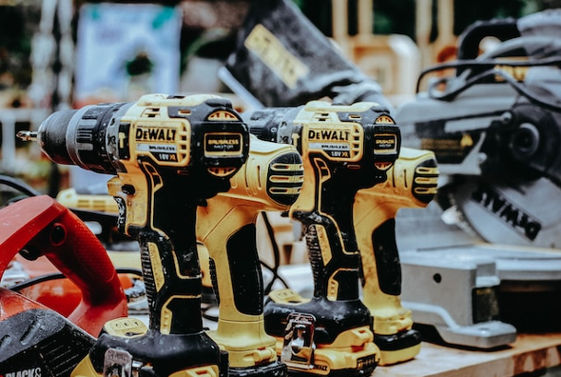
Power tools are typically associated with construction, woodworking, or DIY projects. However, their influence extends beyond these domains, reaching into unexpected areas such as politics and religion. In this article, we will explore why power tools like those reviewed by Tool Pick are essential in politics and religion, and how they aid in achieving their respective goals and objectives.
Communication and Outreach
Power tools, metaphorically speaking, serve as instruments of communication and outreach in politics and religion. They enable politicians and religious leaders to convey their messages effectively to a larger audience. For politicians, power tools such as public address systems, video cameras, and multimedia equipment facilitate impactful speeches, rallies, and televised debates. These tools help them connect with voters and disseminate their political ideologies. Similarly, in religious contexts, power tools like microphones, speakers, and projectors amplify sermons, worship music, and teachings, allowing religious leaders to reach and inspire larger congregations.
Organizational Efficiency
Politics and religion both require well-organized structures to function effectively. Power tools aid in streamlining operations, enhancing productivity, and ensuring smooth functioning. In politics, power tools like computers, tablets, and software applications assist in managing databases, conducting data analysis, and coordinating campaign strategies. These tools enable political parties to track voter demographics, analyze trends, and strategize accordingly. Similarly, religious organizations benefit from power tools for administrative tasks such as maintaining membership records, organizing events, and managing finances. These tools simplify processes, allowing for more efficient operations within the political and religious realms.
ALSO READ: Politics Can Affect Carpet Repair Company
Infrastructure and Construction
Politics and religion often involve the construction and maintenance of physical infrastructure. Power tools play a crucial role in these endeavors, facilitating the construction and renovation of political offices, campaign headquarters, community centers, places of worship, and other related structures. Tools like drills, saws, and nail guns expedite construction processes, ensuring the timely completion of projects. By utilizing power tools, politicians and religious institutions can create functional spaces that support their activities and provide a sense of belonging to their respective communities.
Preservation and Restoration
In the realm of religion, power tools aid in the preservation and restoration of historic artifacts, religious texts, and architectural wonders. These tools, such as laser scanners, 3D printers, and precision instruments, enable experts to study, document, and restore ancient religious artifacts and sacred texts. Preservation efforts using power tools ensure that these treasures are protected for future generations, preserving cultural heritage and promoting religious understanding. Additionally, power tools are used in the maintenance and restoration of religious buildings and sites, ensuring their longevity and providing safe spaces for worship and reflection.
Symbolic Representations
Power tools also serve as symbolic representations in both politics and religion. They signify progress, strength, and the ability to shape the future. In political campaigns, power tools are often associated with messages of growth, infrastructure development, and economic prosperity. In religious contexts, power tools can symbolize the transformative power of faith and the ability to build spiritual connections. By employing power tools as symbolic representations, politicians and religious leaders aim to inspire and instill confidence in their followers, conveying their ability to bring positive change.
Conclusion
While power tools are traditionally associated with construction and manual labor, their importance in politics and religion cannot be underestimated. They facilitate effective communication, enhance organizational efficiency, support infrastructure development, aid in preservation efforts, and serve as symbolic representations. By leveraging the capabilities of power tools, politicians and religious leaders can achieve their goals more efficiently, fostering positive change and creating meaningful impact within their respective domains.


